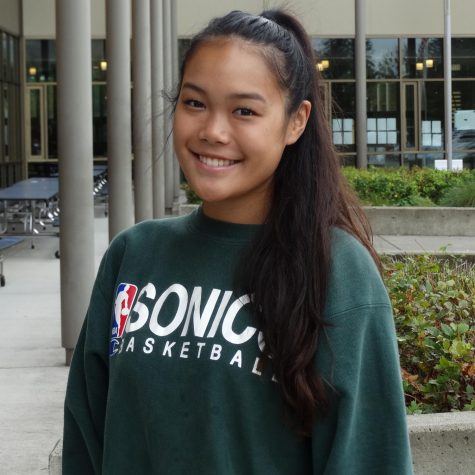Cinema’s Effects on High School Expectations
October 11, 2021
Cinema is a source of entertainment and story-telling, offering different perspectives to the audience. Viewers closely follow shows and movies as they connect to some aspect of it and are curious to see what the characters do. Whether it be the “Peter Kavinsky vs. John Ambrose McClaren,” or the more recent, “Ben vs. Paxton” controversy, screenplay writers know what sells, so they wrap the idea of love triangles in a high school setting with different characters and give it to the audience, who seems to enjoy it. An article by Allthecinema states, “All kinds of movies are made to appeal to the interest of different sorts of viewers.” Movies, TV shows, and web series made specifically about high school mask the academic struggles faced by high school students every day and shift it to their personal lives, making it seem like high school is a breeze. While some may be at better spots with their learning, the majority of students scramble to finish their work done and get things put together.
An article from Mlive states, “Movies and television are perhaps the most powerful factors influencing the modern generation.” With the tremendous effect that this can have upon students, it can also potentially develop a false illusion about high school for incoming students. This is important, especially since over the 1.5 years of remote learning the last full normal in-person year that the freshmen experienced was sixth grade. When asked about his expectations as he entered IHS, freshman Jacob Chalissery states, “I used to watch a show called ‘Lab Rats’ that had a lot of high school life in it. I thought high school wouldn’t have much homework because of it. I didn’t think the show was an accurate representation of high school when I first saw it, but I believed some parts of it. However, nothing I remember from the show really came true once I started high school since it doesn’t prepare them for the work, and only shows them the fun parts.” Chalissery describes how high school seemed like a world of freedom and independence as a child instead of all the responsibility that constantly builds up on one throughout the four years.
Oftentimes, while discluding the academic, non-relevant parts of the concept, movies tend to incorporate significant relationship conflicts, which are both internal and external. Junior Anisa Maggiore, an actress herself, states, “Cinematic storytelling gives everyone idealized versions of reality. It is all edited, all set up, so you can have the prettiest shot possible, the prettiest lines, the prettiest people. Hollywood is filled with impossible standards. The realness of life isn’t always an adventure, I hate it too, trust me, but there is a balance to how much of those things could actually be true. Of course, drama is always happening in high school in some form or another, but the extent it is to is usually not very life or death, as shown in several movies.” Maggiore claims that relationships can indeed get complicated amongst high schoolers, but cinema is used to exaggerate these ideas and manipulate them to add to the plot.
An article by Bearing News states that “movies make high school seem so much worse than it actually is, as if facing and obnoxiously preppy girls is a common occurrence for the typical teen.” These overemphasized dramatizations can affect high school expectations since it inaccurately describes people’s personal insecurities and downs. Agreeing to this claim, senior Isabella Jennings, one who holds an extreme passion for film making and who considers it as her creative outlet for her ideas, believes that there are many movies that have an idea that high school means parties. These parties include all the students of the school, ruled by the popular kids and drinking and peer pressure involved. She states, “And maybe it is because I am not the type of person who is into that stuff, but I have never experienced or even heard about those types of parties. High school is stressful. Finding out what I want to do with my life and how I can get there without being in debt has really been my main focus the past few years. Movies and TV shows make high school kids more dramatic as writers leave out a lot about what it is like being a teenager since being stressed out about your future are not interesting enough and it is hard to picture academic pressures dynamically.” Due to this struggle, writers usually overlook the entire academic aspect of high school since it will not gather as much audience.
Although they do not fully cover all aspects of high school, the emphasis on problems in relationships over academic pressure can be occasionally beneficial. Students usually develop extreme viewpoints of high school after watching movies: a lot of work and barely any rest, but it is crucial to balance this viewpoint. iVision teacher and advisor of IHS Film Club, Buddy Bland believes that many recent cinematic visuals are made to be relatable to their audience, which is good, because before this trend, it was always something about bullying or two opposite characters against each other. Though he does find a lack of creativity and believes there are potential serious topics as well. The writers can create diverse scripts, but they choose not to, blinding an aspect of the developing outlook that younger students have for high school, though he does appreciate movies spending time covering personal life conflicts in movies. He states, “When you have a lot of kids and a lot of situations, people have different problems that they are dealing with, so I could actually see how those underlying conflicts and relationship problems are going in a student’s life. And as teachers, we do not really know those types of things because we are not really allowed to ask until the kid reaches out so we do not know. I know for a fact that kids do struggle with the pressures of school with too much homework and those standardized tests happening, but we do not know about all the personal problems that go on.”
To ideally portray a high school student’s life, students must be properly represented in terms of the amount of work they are getting and the effort that they put into their work, while it is also simultaneously important to describe how personal situations, schedules, and conflicts can influence this work-schedule. An article by the National Institutes of Health states, “Films are expected to form beliefs, influence opinions and change attitudes, including towards topical social issues.” Jennings agreed to this opinion and adds, “I want to see more about academic validation and [the] competition because it sucks.” That way, if any middle schoolers watch the movie or TV show, they can get a balanced estimate of the workload, learn how to support their peers and themselves when things get hard, and create realistic expectations as they come into high school and begin embarking on this new course.




